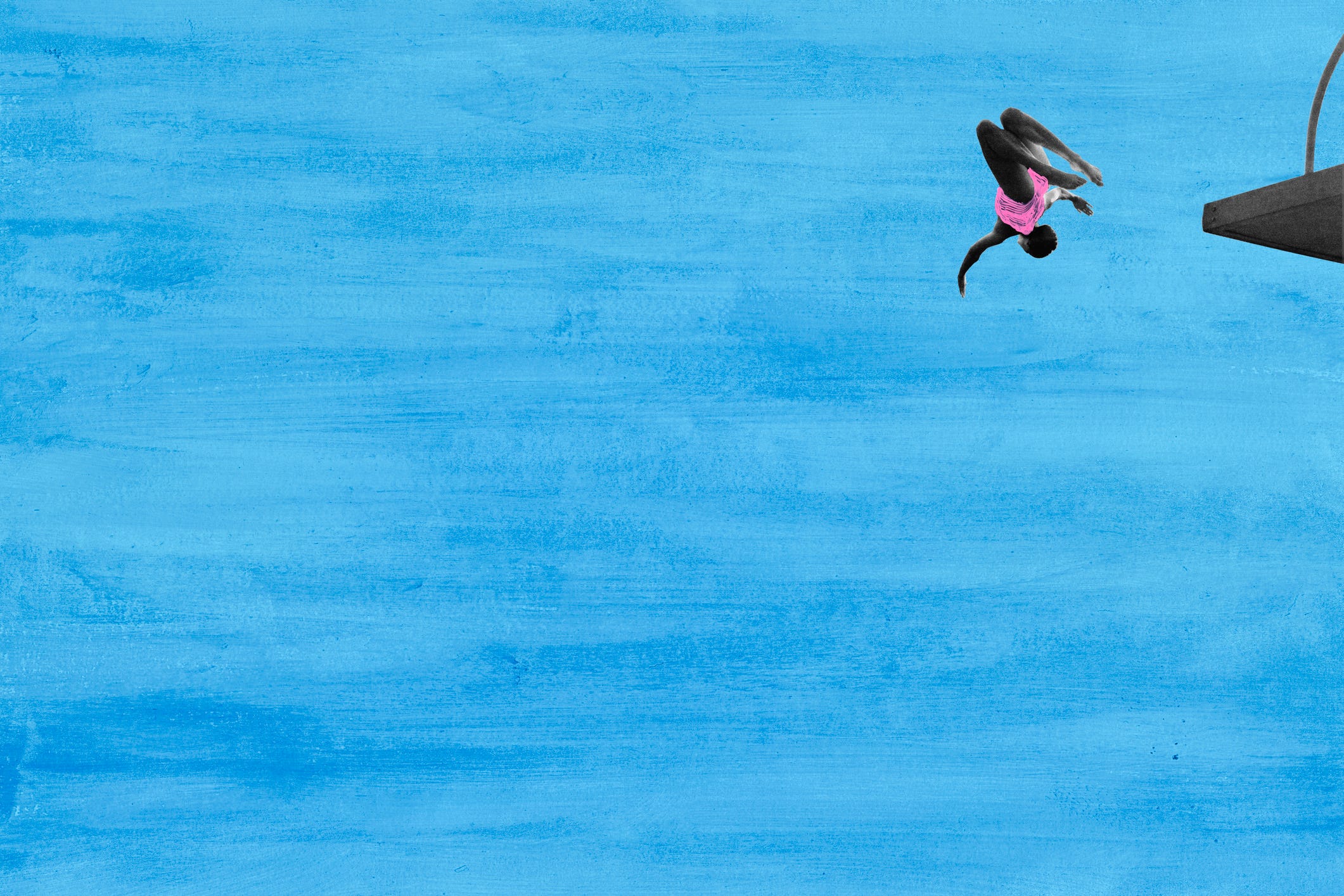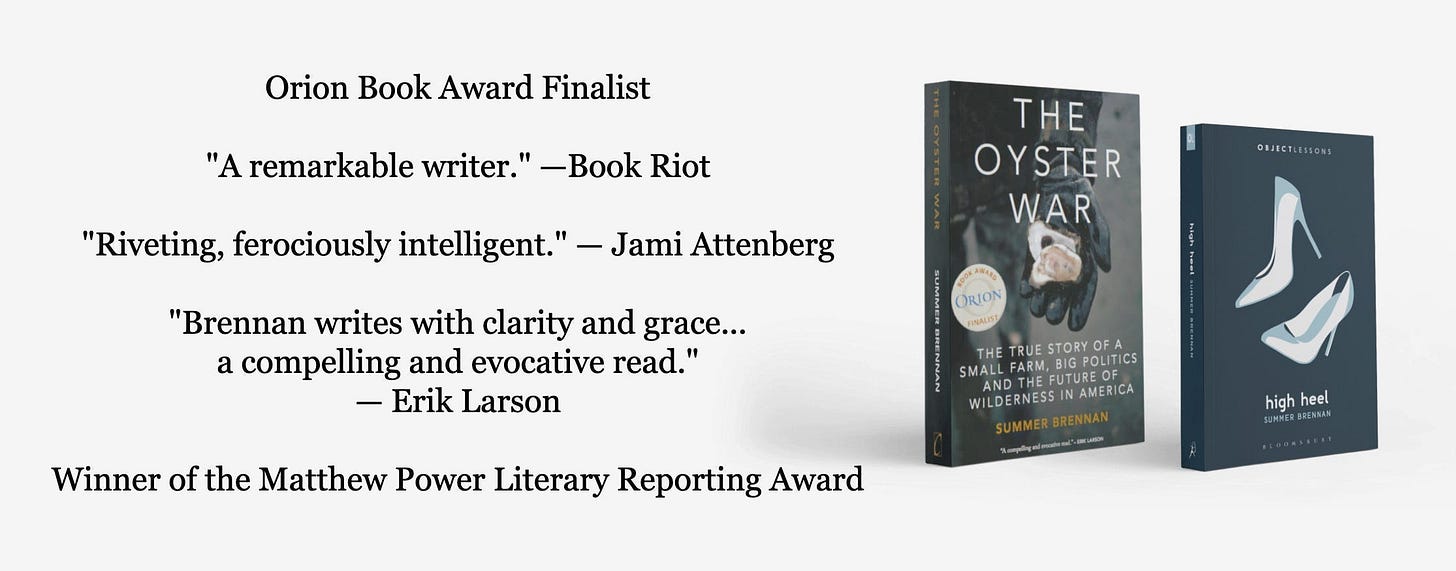My Year of Writing Dangerously
Last year I set out to write a "five things" draft every day for 365 days. Here's what happened next.
January is one of my favorite months. This may sound odd, but I have my reasons. I like the dark early mornings. I like getting up before the dawn and feeling like the responsibilities of the day are still miles away, like those hours before the sun comes out are mine and mine alone. There’s a feeling that you can get sometimes after the holidays, when the bustle of celebration and gathering is finally over, and the time has come to dig in, get cozy with a bowl of soup or a mug of hot chocolate, and disappear into a really good book. It’s a clean month, a private month. It’s a virtuous month, made for fresh starts and new projects. The days are slowly getting longer, and the wheel of the seasons has turned once again, so that you can look down the long corridor of winter and see spring waiting for you at the other end of it.
If you’re a regular reader of this newsletter, you’ll know I’m a big fan of challenges and special projects. In January of 2023 I set out to complete a challenge I made for myself called Project 1,825 Things. The idea was to write what I call a “five things draft”—a journaling exercise I developed as an alternative to morning pages—every day for one year. At the end of those 365 days I would have accrued 1,825 “things”—ideas, observations, images, anecdotes, memories, false starts, trains of thought, whatever the case may be.
Before I hold you in too much suspense, I should confess that I did not succeed in writing a five things draft every day for one year. I did not make it to my goal of 1,825 things. I did, however, keep trying. I kept coming back to it, never letting it drop for too long, and I learned a lot in the process.
I began the project on January 1st and managed to keep up the daily practice for 36 straight days before I forgot, on February 6th, and skipped a day. It was a Monday, and I don’t remember what was going on that made me forget, but I was probably just busy. I had a doctor’s appointment. I was on deadline for something important. Ironically, I did write two pages in my regular journal that day, but I did not take the time for a five things draft where I record non-logistical thoughts and observations—the kinds of things that can be the seeds for an essay. Then I made it another 11 days before I forgot again. Two days after that I forgot for a third time.
This is how most of our projects and resolutions fail. We slip up once or twice, and then we continue to slip up. Slipping up gets easier. The more we forget, the easier it is to keep forgetting. The habit of not-writing is always going to be easier and stronger than the habit of writing, and so any weakness in our resolve can be exploited by the forces of entropy.
I didn’t manage to write 1,825 separate things, but here is what I did do. I wrote 144 typed pages of daily observations and reflections, totalling 77,953 words. That’s the length of a whole novel. I wrote these drafts on 168 days out of the year—not even half the time—but still I managed to amass 875 things. It’s a disappointing number to me compared with my original goal, but I know I should be proud of it anyway. I revised and edited parts of those drafts into 32 different essays or vignettes that I shared with you here in this newsletter, more than 25,000 words. That leaves over 50,000 words left to explore.
Much of what I wrote felt too personal for me to share in the form of a newsletter. Not without giving it time to sit for a while. The idea was to write even when I did not feel like writing. To write even when something horrible was happening, when I was sick, or sad, or injured, or even freshly grieving. Some days I did not write for no good reason at all, other than that I forgot. On other days I wrote hours after getting out of surgery. I wrote on a day when someone died. I wrote while angry and hopeless. I wrote in circumstances where I would normally never have written before.
By November, I realized I was writing—had written, in fact—a memoir. In the cracks between my other projects, in the early mornings and late at night, I’d somehow written this entire other book without quite realizing what I was doing. Since then I’ve started to revise it and give it some shape when I can. The revised draft is still under 15,000 words at the moment, but I can see where it is going. It has a beginning, a middle, and an end. I have a title and an idea for the cover art. I hope, when the time comes, that the powers that be will think it’s good enough to publish.
A lot of digital ink has been spilled on the topic of daily writing practices and whether or not every writer should keep one. The short version is that of course, it depends—on the writer, on their goals, on the cycles and rhythms of their own creative being. Personally, when it comes to writing, I’m a bit like what happens when the unstoppable force meets the immovable object. It’s hard for me to get going, but once I do, it’s hard for me to stop. Even so, I found that six weeks was about the maximum length that I could go with my daily observational writing practice before I started to feel burned out.
I should be clear that I did write on most days in 2023. Writing is my day job, so on the vast majority of those 197 days when I did not write a five things draft, I nevertheless still wrote something. I was usually working on a Substack post, or on an article or an essay, or on my forthcoming book The Parisian Sphinx. I completed two new drafts of that book, the first at 70,000 words, the second at 90,000. I’m hoping to turn in the final draft very soon.
But book writing, essay writing, and Project 1,825 Things were not the only kinds of writing I did last year. I tried to write in a physical notebook once a week as well, with something I’ve come to call my “weekly inventory.” I filled up two lovely journals in this way. While I don’t let myself vent or complain in my five things drafts, I didn’t worry about that in my journals, even though I like to keep things structured there too. In my inventory journals, I break my life down into categories, loosely inspired by Maslow’s hierarchy of needs—the body and its upkeep, my emotions and personal life, my creative life, my professional life, my logistics and responsibilities. I try to check in with myself on each level. Every time I sat down to write in the journal, I would read back over my updates from the previous entry and see what had changed. Was I doing better? Worse? The same? Did I follow up on the things I told myself I was going to follow up on?
All told, I really did do a tremendous amount of writing last year. Despite not meeting my ultimate goal with Project 1,825 Things, I nevertheless felt inspired to write more than I ever had before. I felt ideas popping into my head almost every morning. I even started a few fiction projects, which I might pick up and explore further once my book-writing schedule is clear again.
Over the holidays, I found the first proper book I ever started writing when I was 12 years old—a fantasy novel I had stashed in a box back in the U.S. There were about 9,000 words of it typed up, and then another 5,000 or so that were handwritten. The rest of the novel was detailed in an outline. I decided to type those up too, and was surprised to find the prose readable and the story engaging. I had completely forgotten the plot, and so kept turning the pages eagerly to see what happened next. I remembered sitting in front of my dad’s giant beige computer in the 6th grade, with a massive dot matrix printer beside me, staring at the blinking cursor on the screen. I had written Chapter One, and then nothing. My dad had come downstairs to see little-me sitting there like that, and laughed in sympathy. But somehow, over time, I had managed to get some version of the book out, and there it was.
Is there a market for fantasy novels one writes when one is 12? Probably not, but it would feel like a gift to the girl I was then, to try and see it through at some point. (An historical fiction novel I started that same year, about Queen Nefertiti, has apparently been lost to the sands of time.)
My ultimate take-away from my experiment with Project 1,825 Things was two-fold. For starters, I was reminded how much one can achieve with consistent effort meted out in small increments. I failed more often than I succeeded, and on the days when I did keep up with the project, my average output was less than 500 words. Even then, I still managed to produce the equivalent of a full-length book, and found a new project—a memoir—that I’m excited about in the process.
Now that I’ve tested this method out on myself to see what works and what doesn’t, I’d like to invite others to join me. In 2024, I’ll be teaching a year-long writing class in intentional journaling and generative freewriting. It’s called A Year of Writing Dangerously. I’ll be administering it through a specially designated Substack newsletter and via Zoom. The class will consist of five sessions of six and a half weeks. Each session will include a live workshop (also recorded for those who can’t attend or who wish to revisit), daily writing prompts, private chat threads, and one-on-one meetings during office hours. The class includes all five sessions: February 1st—March 15th, April 1st—May 15th, June 1st—July 15th, September 1st—October 15th, and November 1st—December 15th. Those who wish to do so can focus on creating a collection of essays or a memoir by the end of the year, but this is optional. The cost for the full year is €275, or $300. Full scholarships will be available based on financial need.
If you’re interested, I hope you’ll join me. You can sign up for the free option and decide to enroll later if you like.
In the meantime, I’ll be continuing with the Essay Series here, publishing more notebook entries, and plan to hold the next Essay Camp in March or April— I haven’t worked out the dates just yet.
Thank you for reading, and Happy New Year xo
Enjoy my writing and want to support it? Become a paid subscriber today. You’ll get full access to craft talks, essays, notebook entries, sketchbook pages, and the popular semiannual write-along workshop Essay Camp. You can also buy my books The Oyster War and High Heel, “like” my posts by tapping the heart icon, share them on Substack Notes or other social media, and/or send them to a friend.







Thanks for sharing this! I really liked your point that even when you weren't working on your specific projects, you were still writing in some form. The mental and motor processes were still happening. Also, I often feel guilty when I am thinking too much - of ideas, of characters - and not actually writing, and then console myself that thinking is part of writing, and that to truly understand what you're thinking, you need to write. That they go hand in hand... At least that's what I tell myself lying in bed at 1am thinking about first or third person 😅
Summer - thanks sharing your success and failure through last year's project. Reflecting on what went well and what didn't are important components of a well lived life. It sounds like at the end of the day the project was a success even if it didn't complete your stated goal.
I also felt like you were describing me in your opening paragraph about January. It is one of my favorite months and I love the early morning darkness with my coffee and my thoughts. Best of luck in the new endeavors.